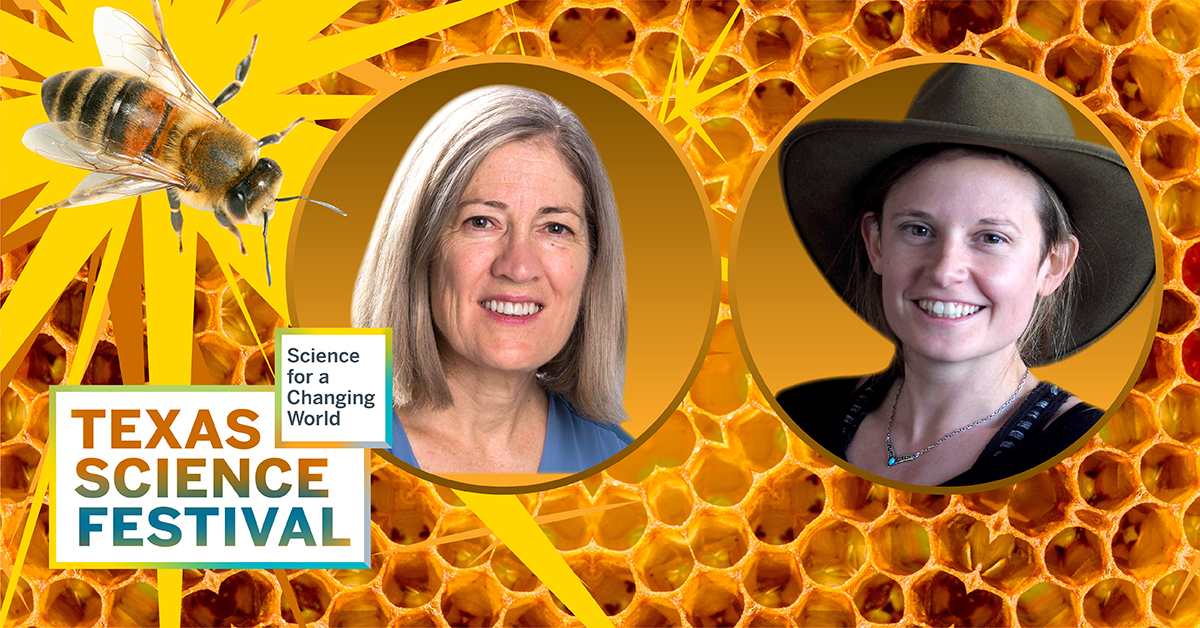Events
Thursday, March 11, 2021, 04:00pm - 04:45pm
Contact cnsdev@austin.utexas.edu
This talk is part of the Texas Science Festival (Feb. 16-Mar. 26). Click here to register and to see a schedule of all the events.

Honey bees, bumblebees and other pollinators play a huge role in our food supply and ecosystems, but they face new and increasing threats. Fortunately, science is finding new clues about how to address colony collapse and other contributors to the decline of bees in two little-explored places: the guts and brains of the bees themselves. Two biologists weigh in on promising new discoveries that may be the key to ensuring the survival of these incredible species that we all depend on.
Featuring:
- Dr. Nancy Moran holds the Raymer Endowed Chair in Integrative Biology at UT Austin. An expert in symbiotic associations and biodiversity, her recent research focuses the distinctive gut communities in honey bees and other social bees. She received her Ph.D. in zoology from the University of Michigan and previously served on the faculties of the University of Arizona and Yale University. She is a member of the U.S. National Academy of Sciences and the American Academy of Arts and Sciences, and the winner of a MacArthur Fellowship and the International Prize for Biology.
- Dr. Felicity Muth is an assistant professor in the Department of Integrative Biology at UT Austin. She received her Ph.D. in animal cognition from the University of St. Andrews in Scotland and was a L’Oreal for Women in Science Fellow at the University of Nevada, Reno, prior to coming to UT. Dr. Muth’s research addresses questions in cognitive ecology and the effects of anthropogenic stressors on bees. In addition to her academic research, Dr. Muth has long been involved in science communication: she wrote for Scientific American magazine online for a number of years, and has been featured on NPR’s Science Friday.
Location: https://sciencefest.utexas.edu














